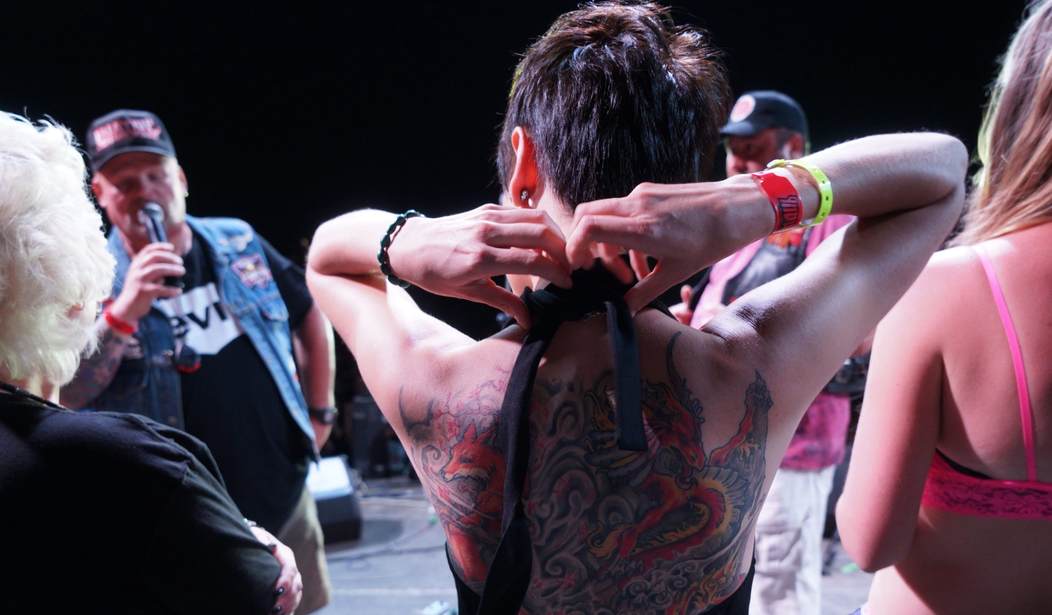Even worse than the continuing existence of rap music, the most depressing development of the past decade is the widespread adoption of that mark of sailors and hookers, the tattoo. I realize it’s a generational thing, and I really don’t care much about what men do to themselves, but nothing defaces a woman’s body more than a barbed-wire biceps bracelet, a tramp stamp, or a snake slithering up her leg. Both my daughters were informed when they were young that a tattoo meant instant disinheritance, and neither ever went near a tattoo parlor.
Now there’s another reason to stay away from ink: your health.
Tattoos may permanently alter the physiology of skin in ways that affect sweating. According to a small, new study, the amount and saltiness of sweat change after skin has been dyed, a finding that might have implications for athletes who ink large swaths of their bodies and maybe even for those of us who sport one or two discreet tattoos (such as the small one on my right shoulder, in case you were wondering).
Tattoos are decorative, often metaphoric, sometimes regrettable, but always injurious. To create a tattoo, the artist punctures the skin with dye-filled needles at a rate of up to 3,000 times per minute. The dye is injected into the skin’s dermal layer, which is also where most sweat glands are.
The body recognizes these injections as abnormal. They have slightly damaged the tissue and left behind a foreign substance, the ink. So the immune system gears up, sending a variety of cells to the site of the inking. Some cells carry off tiny amounts of the ink, primarily to the lymph nodes, where it dissipates. Other immune cells merge with the remaining ink, so that both become long-term residents of that portion of the skin. Still other cells initiate an inflammatory response, helping the injured tissue to mend, which it usually does within a few weeks.
I don’t watch sports on television — I don’t watch any television, in fact — so I’ve been spared the sight of NBA players who look like they should be on a chain gang instead of shooting hoops. But girls in their summer dresses who look like they just got out of prison — no thanks.
Interestingly, the results were the same, whatever the age of the tattoo. Older tattoos altered sweating in the same way as newer tattoos did.
That finding suggests that the underlying cause of the shift in sweat probably involves permanent changes within the skin after tattooing, Dr. Luetkemeier says. Perhaps bits of the remaining dye block some of the sweat glands. But more probably, he says, lingering inflammatory cells change the chemical environment within that area of the skin in ways that slow the response of the glands and affect how much sodium is incorporated from nearby cells into the sweat.
So know you know: sweat it.









Join the conversation as a VIP Member